
COPD, or chronic obstructive pulmonary disease, is the third-leading cause of death worldwide. This condition includes respiratory symptoms like shortness of breath, coughing, and wheezing. It’s also an umbrella term for progressive respiratory diseases such as emphysema, chronic bronchitis, and asthma.
While there isn’t a cure for COPD, eating well could slow the progress and ease some of the symptoms. People with COPD are encouraged to eat foods that reduce inflammation and contain antioxidants, protein, and healthy fats.
If you’re interested in learning about what to eat for a healthy COPD diet, read through this list of the 12 best foods for COPD. At the end of this list, we’ll dig even deeper, and I’ll share six edible home remedies that could ease COPD symptoms.
12 Fabulous Foods For COPD (With Pictures!)
Berries
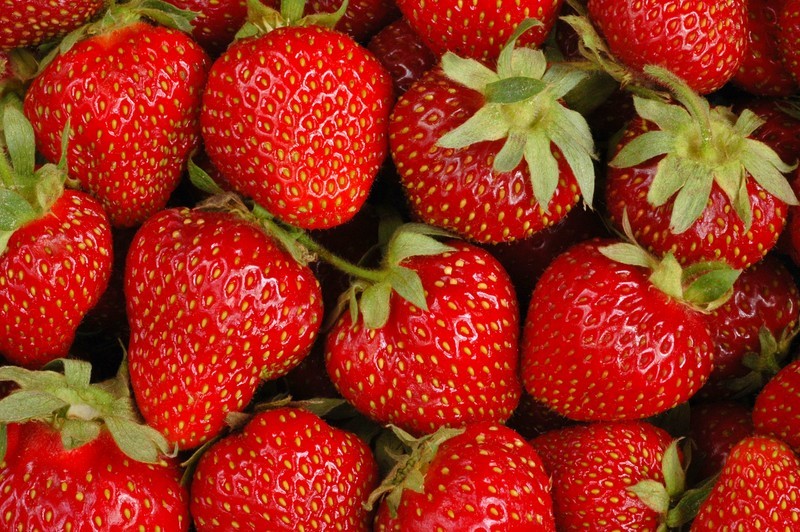
Berries are great for people with COPD, especially dark-colored berries like blueberries and cranberries. Dark berries contain pigments called anthocyanins. Besides giving berries their color, anthocyanins have strong anti-inflammatory and antioxidant properties. Quercetin, a flavonoid found in dark berries, is also a powerful anti-inflammatory compound. Some of these compounds have been studied for their role in reducing the risk of lung cancer.
Some berries are also very rich in vitamin C. One cup of fresh strawberry halves provides 99% of the daily recommendation for vitamin C. This is important because vitamin C is an antioxidant and anti-inflammatory substance, but also because it’s used to keep tissues healthy throughout the body.
Salmon
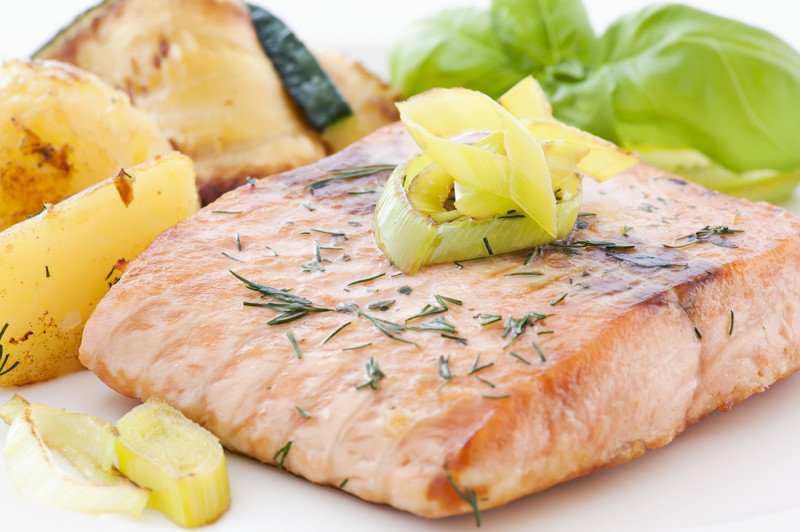
People with COPD have higher requirements for protein than people without, and they’re at risk of losing muscle mass. Salmon is an excellent source of protein. One small salmon fillet provides 44 grams of protein or around 88% of the daily recommendation.
Salmon is also rich in omega-3 fatty acids. Omega-3 fatty acids have several health benefits. These include reducing blood pressure and triglyceride levels, increasing good cholesterol, and fighting inflammation. These healthy fats also combat metabolic syndrome, fatty liver disease, and cancer.
Salmon is an excellent source of vitamin D, too. This is important because people with COPD often have low levels of vitamin D. One small salmon fillet provides 116% of the daily recommendation for vitamin D.
Oatmeal
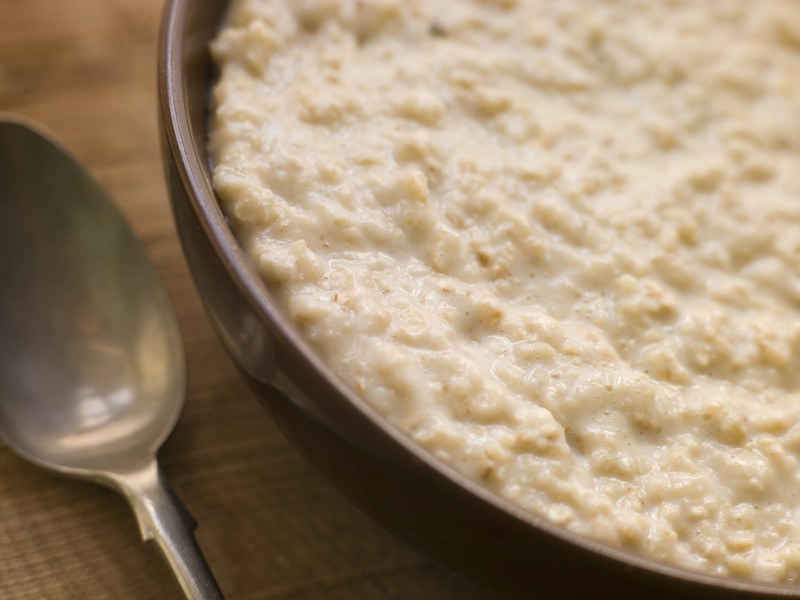
Fiber-rich foods are highly recommended for people with COPD, and oatmeal is a great source of fiber. One cup of cooked oatmeal provides 15% of the daily recommendation for fiber.
One interesting thing about the fiber in oatmeal is that much of it is a type of soluble fiber, called inulin. Inulin is a prebiotic fiber that feeds good bacteria and lowers inflammation in the gut.
Eating oatmeal provides several other health benefits, too. Some sources indicate it reduces the risk of asthma, improves cholesterol levels, and provides antioxidant effects.
Avocado
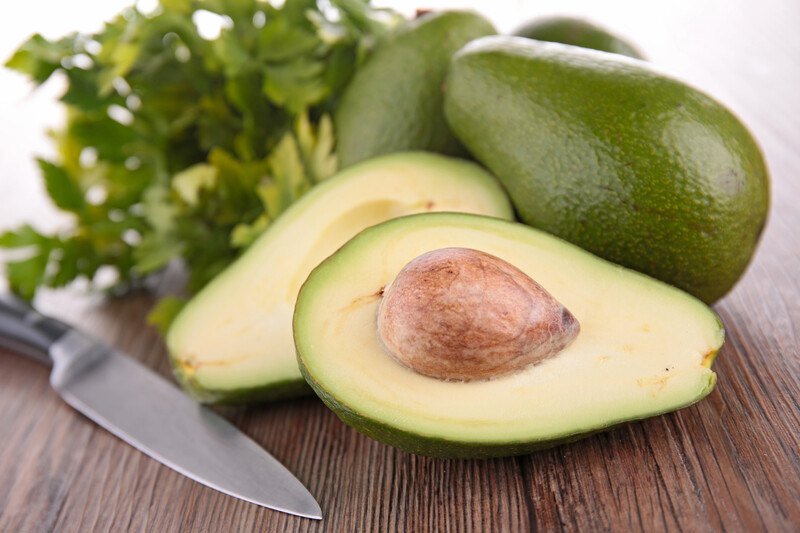
Avocado is an amazing food for several reasons. It’s packed with healthy fats, fiber, vitamins, and minerals that provide a number of health benefits, including supporting the health of people with COPD.
Some sources indicate that a low-carb, high-fat diet, such as a ketogenic diet, is essential for people with COPD because it could ease the strain on the respiratory system. Avocados fit well within this type of eating plan. One avocado provides around 13 grams of carbohydrates, but 10 grams of that is fiber. An avocado also provides 28% of the daily recommendation for fat. The good thing about this is that avocados contain the same type of healthy fats as those found in olive oil. These fats are excellent for the heart, and they’re great for reducing inflammation in the body, too.
Avocados are also rich in folate, vitamins C, E, and K, and minerals such as magnesium, zinc, and potassium.
Potatoes
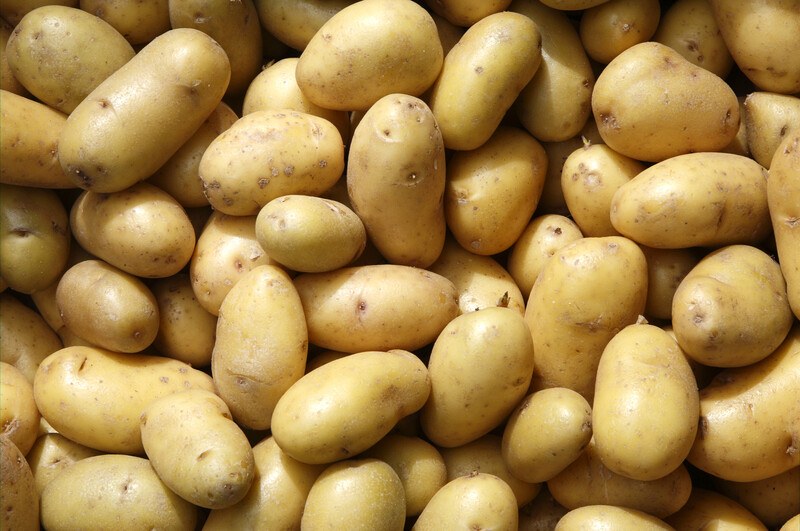
While white potatoes have a reputation for being packed with carbs, they can be part of a healthy COPD diet. Potatoes are surprisingly rich in fiber. One small baked potato provides 18% of the daily recommendation for fiber, as well as 11% for protein.
Potatoes are also rich in vitamin C, which provides antioxidant and anti-inflammatory benefits. A small potato provides 25% of the daily recommendation for vitamin C. Potatoes are also rich in folate, B vitamins, and minerals such as iron, potassium, magnesium, and zinc. Magnesium is particularly interesting for people with COPD because it has been studied as a muscle relaxant for muscles around the rib cage that tend to cramp.
Dark Chocolate

Like berries, dark chocolate is loaded with flavonoids and other antioxidants that help keep people healthy. Dark chocolate is also rich in substances that help keep arteries open, increase insulin sensitivity, lower blood pressure, and reduce the risk of heart attacks and strokes.
Dark chocolate is also great for lowering inflammation in the body, and that’s great news for people with COPD. Chocolate might also reduce stress, improve the immune system, and boost mood and memory. However, there’s a catch: the chocolate must be dark, not milk chocolate that’s overloaded with sugar and other ingredients.
Nuts
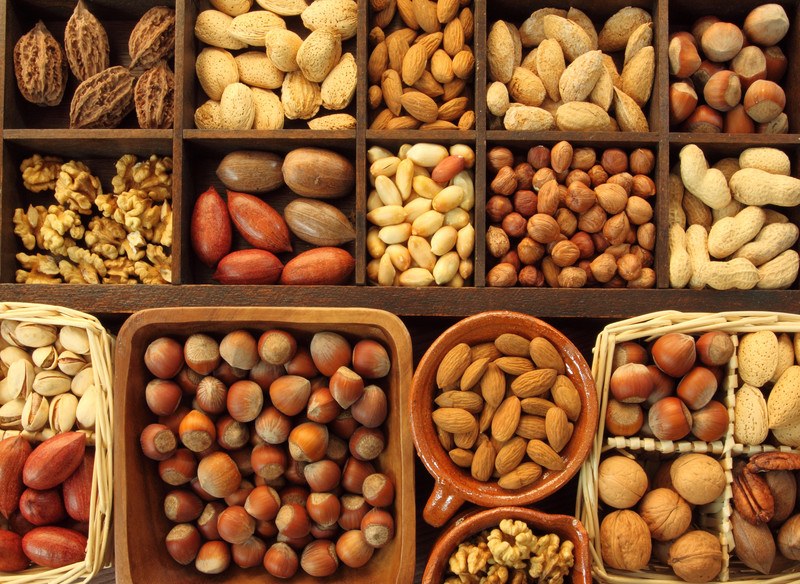
One of the great things about nuts is they’re rich in protein and fats while being relatively low in simple carbohydrates. For example, an ounce of raw almonds provides 12% of the daily recommendation for protein and 18% for fat, with just 2% for carbohydrates. Additionally, more than half of the carbohydrates for raw almonds come from dietary fiber.
The nutrient profile for English walnuts has less protein but more healthy fats. An ounce of English walnuts provides 9% of the daily recommendation for protein, with 23% for fat and 7% for fiber. The fats found in English walnuts contain omega-3 fatty acids.
Cruciferous Vegetables
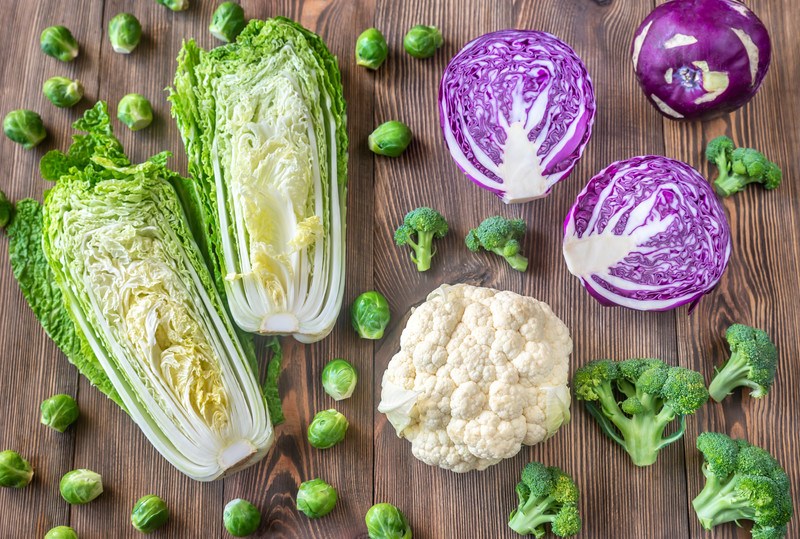
Cruciferous vegetables are vegetables from the cabbage family. They include broccoli, cauliflower, cabbage, kale, Brussels sprouts, and many more vegetables. These veggies are rich in fiber and low in total carbohydrates, and they’re packed with other nutrients that boost overall health.
One thing that sets cruciferous vegetables apart is the compound sulforaphane, which is found in abundance in most of these vegetables. Sulforaphane is a strong antioxidant that helps protect against some cancers. It also has potent anti-inflammatory effects.
Besides sulforaphane, cruciferous vegetables are rich in several other nutrients that can benefit people with COPD. A cup of fresh broccoli, for example, provides 90% of the daily recommendation for vitamin C. It’s also rich in vitamins A and K, folate, several B vitamins, and minerals like potassium, calcium, and magnesium.
Quinoa
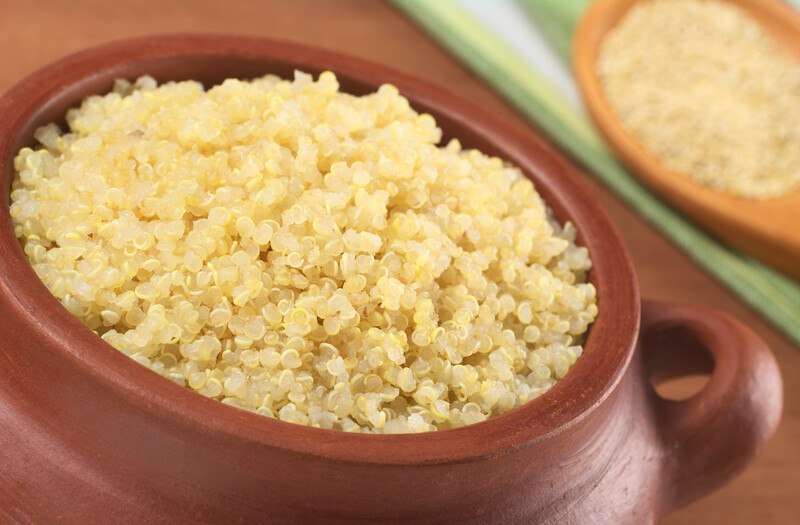
People with COPD are encouraged to eat whole grains because they’re rich in fiber and other nutrients. Technically, quinoa is not a grain. It’s a seed from the amaranth family, but it has a lot in common with grains and is sometimes classified as a pseudo-grain.
One of the benefits of eating quinoa is that it’s rich in both fiber and in protein. A cup of cooked quinoa provides 16% of the daily recommendation for protein, as well as 19% for fiber. It’s also rich in iron, with 16% of the daily recommendation, and potassium, with 7%.
Quinoa is also a good source of B vitamins, folate, vitamin E, magnesium, and zinc. Zinc is particularly interesting because it could help alleviate some of the symptoms of COPD.
Eggs
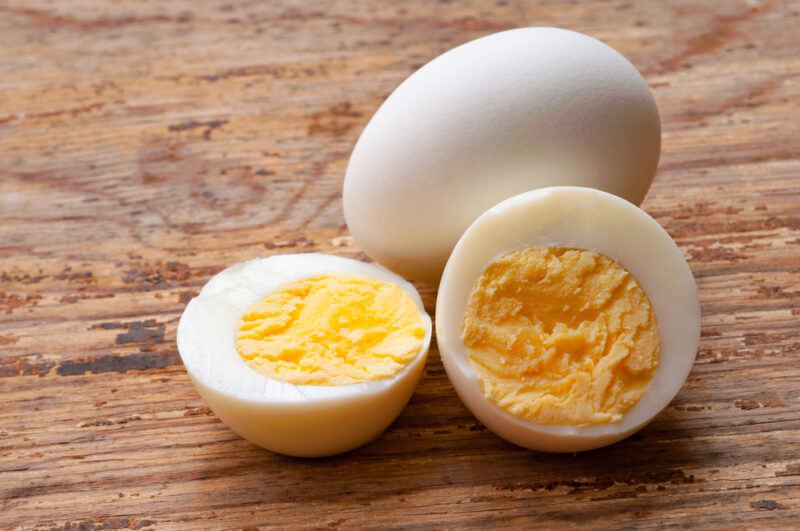
Eggs are an excellent source of protein and fat, and they contain no carbs. One boiled egg provides 13% of the daily recommendation for protein and 6% for fat.
Eggs are also one of the best food sources for vitamin D. One egg provides 5% of the daily recommendation for vitamin D, and it contains several B vitamins, vitamin A, and vitamin K. An egg contains around 28% of the daily recommendation for the mineral selenium, too. Selenium is interesting because it’s being studied for its effects on respiratory and heart diseases.
Eggs contain one other very interesting nutrient: choline. While choline can be made in the body, humans must still get some of it from their diets, and eggs are one of the best sources. Choline is important for combating COPD because it’s been associated with improved lung function, as well as liver function, in people who have cystic fibrosis.
Chia Seeds
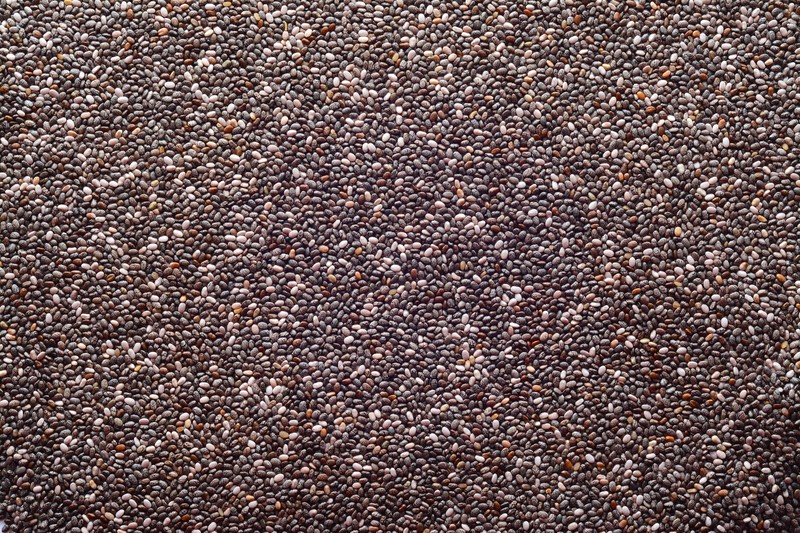
Chia seeds are tiny, dark seeds that come from a mint plant native to Northern Mexico. These seeds are an amazing superfood that provides several minerals, an abundance of fiber and protein, and omega-3 fatty acids.
An ounce of chia seeds provides 9% of the daily recommendation for protein, 35% for dietary fiber, and 11% for fat. It also contains 14% of the daily recommendation for calcium, along with several B vitamins, and it’s a good source of magnesium, potassium, selenium, and zinc.
Omega-3 fatty acids such as alpha-linolenic acid make up around ¾ of the fats in chia seeds. This is great news for people with COPD because omega-3 fatty acids can help reduce inflammation.
Beans And Lentils
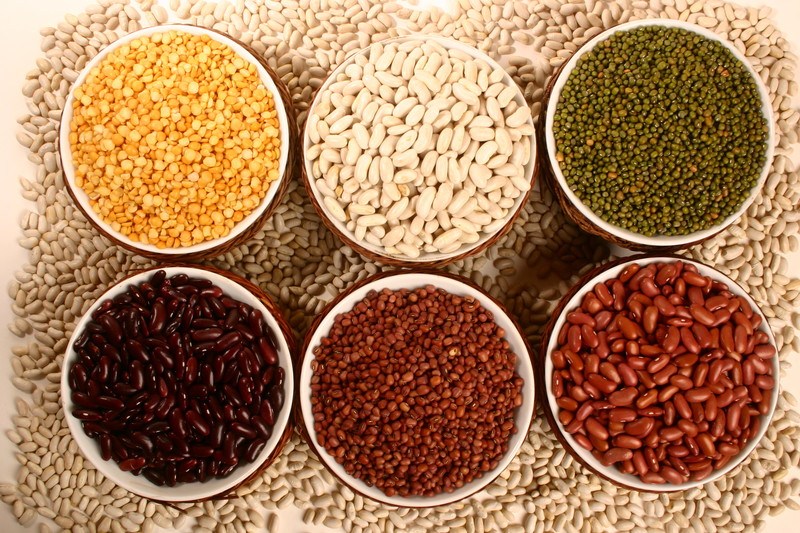
Like quinoa, beans and lentils are rich in fiber and protein. For example, a cup of black beans provides 84% of the daily recommendation for protein and 107% for fiber. Similarly, a cup of lentils contains around 94% of the daily recommendation for protein and 75% for fiber.
These foods are rich in B vitamins and minerals, too. Lentils also contain some vitamin C. A cup of lentils provides around 10% of the daily recommendation for vitamin C.
One of the nice things about beans and lentils is that there are several varieties of them. These versatile foods can be served as main dishes, side dishes, or mixed into casseroles and soups.
Six Home Remedies To Fight COPD

Now that you’ve read about the 12 best foods for COPD, let’s talk about some herbs and home remedies that could help combat COPD. The herbs are often used as spices, and some of the other home remedies make great side dishes.
Remedy #1: Ginger
Ginger is a root herb and well-known spice that’s often used to flavor Asian cuisine. It has several health benefits, including boosting the immune system, treating nausea, and helping with weight loss. When it comes to COPD, ginger is a star because of its high levels of gingerol, a compound with strong antioxidant and anti-inflammatory properties, and it can help clear mucous out of the lungs.
Remedy #2: Turmeric
Turmeric is a bright, orange-yellow root herb that’s related to ginger. The most interesting compound in turmeric is curcumin, which, like sulforaphane or gingerol, has strong antioxidant and anti-inflammatory effects. Turmeric has some antibacterial properties, too, so it could be especially helpful for people with COPD during the cold season.
Remedy #3: Peppermint
Peppermint is an interesting herb with the ability to help clear out the lungs. Some people diffuse peppermint essential oil into the air, while others drink tea made from peppermint leaves. The interesting compound in peppermint is menthol, which acts as a decongestant, but peppermint has some antioxidant effects, too.
Remedy #4: Garlic
Some sources indicate that eating raw garlic could help rid the body of lung infections. There might be some truth to that because garlic has some antibacterial and antiviral properties. Garlic could also boost immunity, and it reduces inflammation in the body.
Remedy #5: Apple Cider Vinegar
Apple cider vinegar is useful for ridding the body of mucous, which can be problematic in people with COPD. Apple cider vinegar also contains acetic acid and other compounds that provide antioxidant and anti-inflammatory effects.
Remedy #6: Fermented Foods
Fermented foods include yogurt, kefir, miso, kimchi, sauerkraut, and other foods that have been fermented and contain probiotic bacteria. The good bacteria in these foods help build a healthy gut microbiome. This, in turn, reduces overall body inflammation and could ease some of the symptoms of COPD.

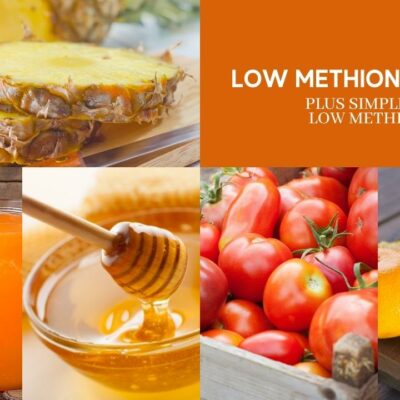
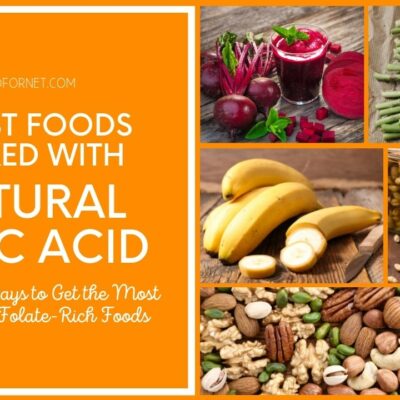

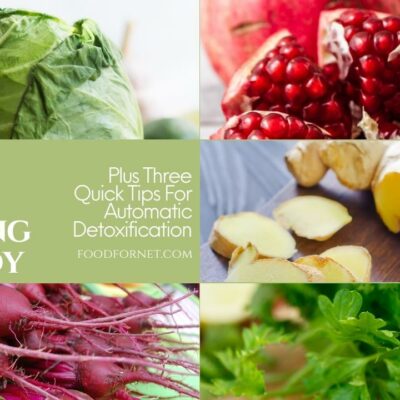





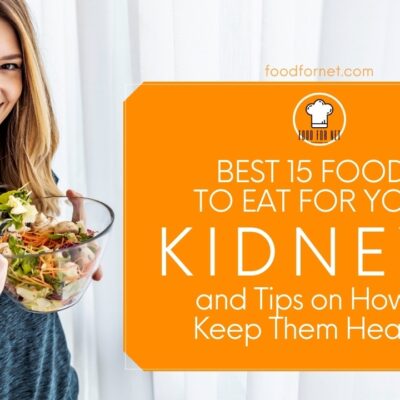






 The Best Way To Drink Whiskey
The Best Way To Drink Whiskey
I eat most of these foods thanks